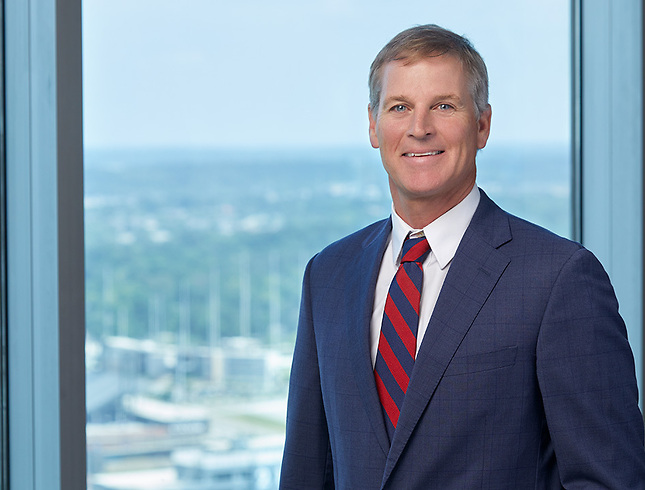- Partner
Reid focuses on financial services litigation, representing clients across the country and serving as a leader in several national attorney organizations.
With a practice concentrated on consumer finance, he primarily ...
Eleventh Circuit Holds Only a Cell Phone Subscriber and Not the "Intended Recipient," May Provide "Prior Express Consent" for TCPA Claims
In Osorio v. State Farm Bank, F.S.B., No. 13-10951 (11th Cir. Mar. 28, 2014), the United States Court of Appeals for the Eleventh Circuit reversed and remanded a Florida district court's grant of defendant's motion for summary judgment on plaintiff's Telephone Consumer Protection Act ("TCPA") claim. Specifically, Plaintiff Fredy Osorio brought suit against State Farm Bank under 47 U.S.C. § 227, which "provides a damages remedy for cellular-phone subscribers who receive autodialed phone calls without having given prior express consent to receive such calls." Id. The Eleventh Circuit decided a critical issue: who is capable of providing "prior express consent, the subscriber of the cell phone or the "intended recipient" of the phone call, under 47 U.S.C. §227. The facts of the case surrounded a May 2007 purchase of car insurance from State Farm by Betancourt, Osorio's housemate. Osorio and Betancourt had known each other for many years, and the two shared a cellular-phone service plan in Osorio's name. In order to pay for the insurance, Betancourt applied for a credit card from State Farm Bank. At some point during the application process, Betancourt gave Osorio's personal cellular-phone number to State Farm as a contact number. The parties argued, however, as to how the number should be listed (i.e., as a good contact number or an emergency number). Betancourt contended that it was given as an emergency contact number while State Farm argued that it was listed as a work number for Betancourt herself. After Betancourt failed to make regular payments on the credit card, a State Farm authorized collection agency made 327 autodialed calls to the number. Osorio claimed to have told the agency to stop calling on two separate occasions, whereas State Farm asserted that they were never told that the number did not belong to Betancourt, merely that Bentancourt was unavailable. On appeal, Osorio made two primary arguments. First, Osorio alleged that the trial court misinterpreted the TCPA when it held that Betancourt, as Osorio's housemate, had authority to consent to receiving the autodialed calls on his phone because Betancourt was not the "called party" as defined in the statute. Second, he argued that if State Farm had any consent to call the number, he had clearly revoked it when he asked them to stop calling. The Court began its analysis by looking to the applicable provision of the TCPA, which provides that [i]t shall be unlawful for any person within the United States, or any person outside the United States if the recipient is within the United States- (A) to make any call (other than a call made for emergency purposes or made with the prior express consent of the called party) using any automatic telephone dialing system or an artificial or prerecorded voice- . . . (iii) to any telephone number assigned to a paging service, cellular telephone service, specialized mobile radio service, or other radio common carrier service, or any service for which the called party is charged for the call . . . . 47 U.S.C. § 227(b)(1)(A)(iii). The bulk of the Court's analysis addressed the meaning of the term "called party", an issue which had not yet been addressed by the Eleventh Circuit. Relying on an unpublished opinion, Meadows v. Franklin Collection Service, Inc., 414 F. App'x 230 (11th Cir. 2011) (per curiam), State Farm argued that within the meaning of the TCPA, the term must refer to the "intended recipient" of the phone call. The Eleventh Circuit rejected this argument, however, because the court in Meadows relied on an exemption promulgated by the FCC under a different subpart of the statutory section. The Court reasoned that the act only authorized the FCC to make rules regarding specific subsections, which did not include 47 U.S.C. § 227(b)(1)(A)(iii). Because the regulation had no bearing on the specific subsection in question, the Court felt that the reasoning from Meadows had no place in the present case. Instead, the Court agreed with the Seventh Circuit's reasoning in Soppet v. Enhanced Recovery Co., LLC, 679 F.3d 637 (7th Cir. 2012). In Soppet, the Seventh Circuit addressed the "called party" definition by noting that there is a presumption that when a statute uses a single phrase consistently over a short span, then the meaning must be consistent in each use. While the two uses of "called party" in relation to consent do not make specific reference to who the party is, the other uses within § 227 are all references to the person who is the current subscriber or the person who actually answers the call. Furthermore, the section does not mention the phrase "intended recipient" at all. Accordingly to the Court, "one can consent to a call only if one has the authority to do so, and only the subscriber (here, Osorio) can give such consent, either directly or through an authorized agent. Therefore, the Court rejected State Farm's argument that the "intended recipient" is the "called party" referred to in 47 U.S.C. § 227(b).

